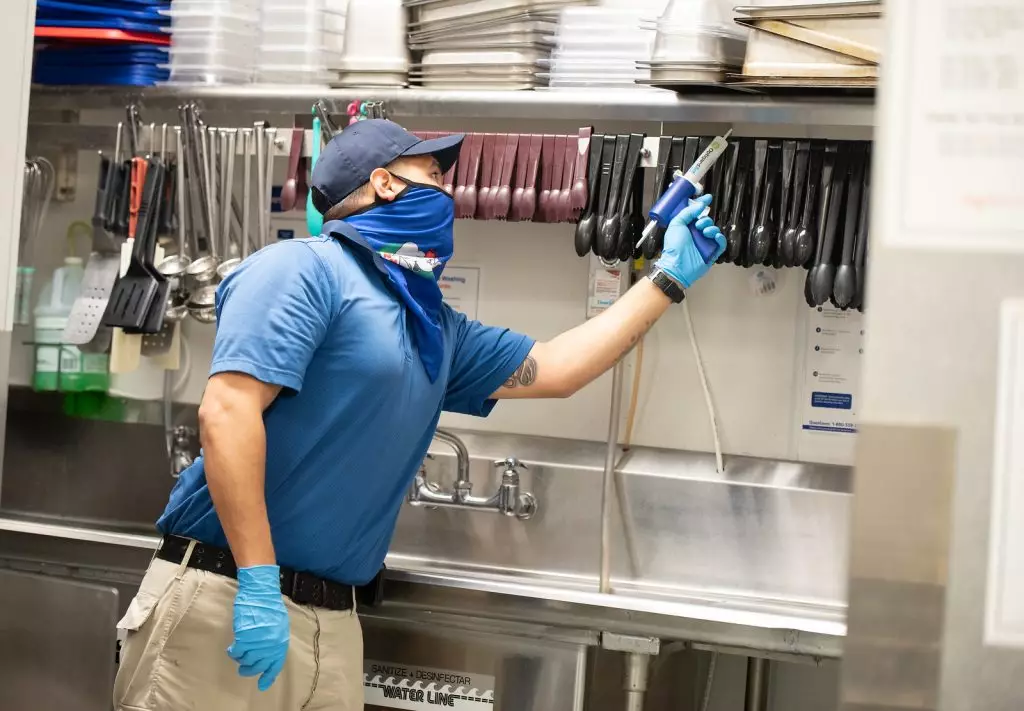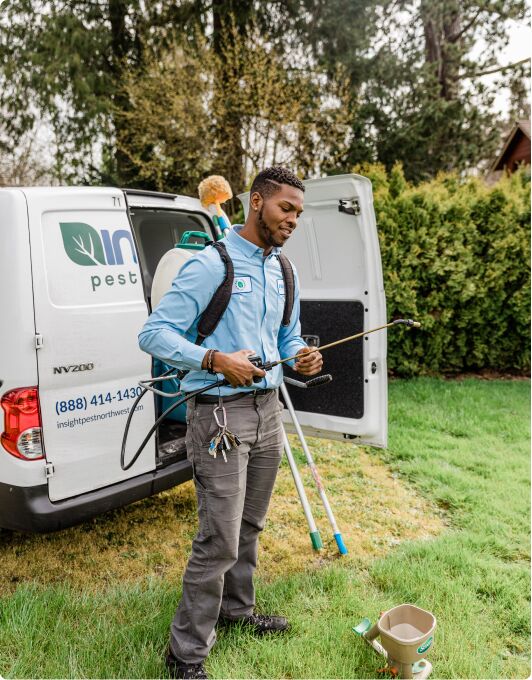Pest Control Auckland: Superior Solutions for a Pest-Free Atmosphere
Wiki Article
Comprehending Different Sorts Of Bug Control Approaches and Their Effectiveness
When considering parasite control approaches, it is necessary to recognize the varied methods offered and their differing degrees of efficiency. By discovering the nuances of these insect control techniques, an extensive understanding of just how to attend to parasite concerns can be created.Chemical Bug Control Techniques
Chemical pest control approaches play a crucial function in effectively handling and eradicating pest infestations in numerous settings. One of the vital advantages of chemical pest control is its ability to give fast and targeted remedies to pest troubles. Pest Control Auckland.Nevertheless, it is vital to take into consideration the prospective risks and downsides linked with chemical parasite control techniques. Overreliance on chemicals can result in the advancement of chemical resistance in bugs, making them more challenging to regulate over time. Additionally, the use of certain chemicals can have unsafe impacts on non-target organisms, the atmosphere, and human health and wellness if not used properly.

Biological Insect Control Techniques
Making use of all-natural predators and microorganisms to take care of insect populations efficiently, organic insect control techniques use a eco-friendly and lasting strategy to pest administration. By introducing or promoting the task of microorganisms that normally prey on or contaminate insects, such as ladybugs for aphid control or specific germs for caterpillar problems, biological control can assist keep insect populaces at manageable degrees without the need for artificial chemicals. This method is especially advantageous for chemical-free farming methods, as it avoids the use of potentially hazardous materials while maintaining plant health.
Physical Pest Control Methods
While organic insect control techniques concentrate on harnessing natural killers and pathogens, physical insect control techniques make use of mechanical and physical obstacles to manage pest populations. These methods are often thought about ecologically pleasant as they reduce making use of chemicals. Physical pest control consists of techniques such as capturing, utilizing barriers like nets or screens, and physically removing parasites from the location.Traps are typically utilized in physical parasite control to catch and eliminate bugs like rats and bugs. One more physical approach is the use of obstacles such as screens, webs, or fencings to stop bugs from entering or infesting certain locations.
Natural Parasite Control Methods
Incorporating all-natural predators and plant-based repellents is a crucial technique in executing effective all-natural insect control methods. By motivating the visibility of advantageous pests like ladybugs, lacewings, or predacious mites, garden enthusiasts can naturally regulate pest populaces. These killers eat typical garden insects such More hints as aphids, mites, and caterpillars, aiding to keep a well balanced ecosystem without the need for chemical interventions.
Additionally, executing social methods such as crop turning, buddy growing, and preserving proper plant health and wellness can also boost the efficiency of all-natural pest control approaches. These methods not just aid in preventing parasite invasions but likewise advertise biodiversity and overall environment resilience. By incorporating these all-natural methods, individuals can properly handle pests while reducing ecological effect.
Integrated Parasite Management (IPM) Strategy
Executing an Integrated Parasite Management (IPM) strategy is important for effectively managing pest populations while decreasing reliance on chemical pesticides. IPM is a sustainable and detailed strategy that combines different parasite control methods to accomplish lasting solutions. This technique concentrates on control, prevention, and tracking to resolve bug problems in an eco-friendly manner.IPM incorporates biological, social, physical, and mechanical strategies with the strategic and limited use of chemicals when essential. By emphasizing aggressive steps such as habitat adjustment, biological control, and exclusion, IPM aims to decrease insect populations and their effect on the environment. Routine tracking is vital in IPM to examine bug levels precisely and figure out one of the most appropriate control methods.
One of the crucial benefits of IPM is its capability to minimize the risks connected with too much chemical use, such as environmental contamination and harm to non-target organisms. Furthermore, IPM advertises a more all natural method to pest management by thinking about the total community characteristics. On the whole, the IPM technique provides a lasting and efficient service for parasite control while advertising environmental duty.
learn this here now
Conclusion
In final thought, recognizing the different kinds of bug control approaches and their performance is important in successfully taking care of insect problems. Chemical, organic, physical, and all-natural parasite control approaches each have their own benefits and restrictions. Integrated Parasite Administration (IPM) approach, which integrates various approaches for sustainable insect control, is significantly being acknowledged as a all natural and ecologically friendly option. By making use of a mix of these people, methods and organizations can successfully regulate insects while minimizing injury to the setting.Chemical pest control methods play an essential duty in effectively managing and removing pest problems in various atmospheres.Utilizing natural predators and microorganisms to handle bug populaces successfully, organic insect control methods supply a environment-friendly and sustainable technique to pest management. By promoting the task or presenting of microorganisms my blog that naturally prey on or contaminate pests, such as ladybugs for aphid control or certain bacteria for caterpillar problems, biological control can assist keep insect populations at manageable levels without the demand for artificial chemicals.While organic bug control techniques focus on harnessing all-natural predators and pathogens, physical parasite control techniques utilize physical and mechanical obstacles to handle pest populaces. Integrated Insect Administration (IPM) technique, which incorporates numerous techniques for sustainable insect control, is progressively being identified as a holistic and environmentally friendly remedy.
Report this wiki page